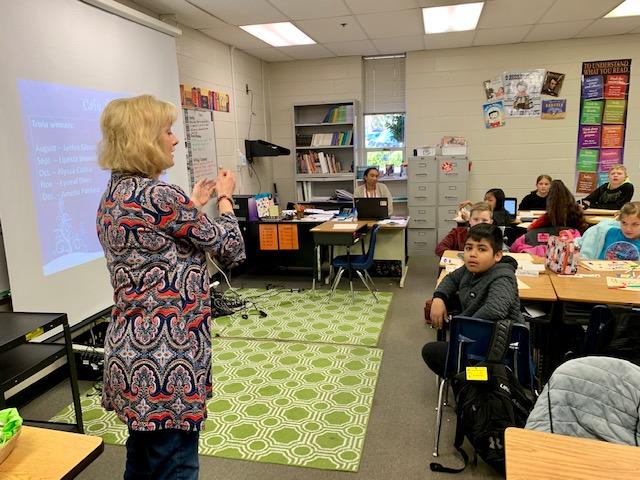Section Branding
Header Content
School Choice Debate Reignited With New Bill
Primary Content
Students who suffer from bullying, have been adopted from foster care, live in poverty or have a specified disability may be part of a group that would qualify for a state-funded private school voucher to provide alternatives to public educationGPB Reporter Grant Blankenship spoke to Rep. Wes Cantrell about House Bill 301.
House Bill 301 or the Georgia Educational Scholarship Act, sponsored by Rep. Wes Cantrell (R-Woodstock), would allow parents to use state funds to cover the cost of their student’s private school education. Meanwhile, backers of the idea are hedging their bets against the failure of the house bill with the nearly identical Senate Bill 173 on the other side of the Georgia Capitol.
Students would receive the portion of state funding that their school district allocates to each student.
There are a number of ways for a student to qualify under this bill. In addition to those students who would be covered under this program because of their adoption, bullying, economic status or disabilities, the bill also covers students who are the child of a military service member. The student can also qualify simply by having attended a Georgia public school in the previous year.
Cantrell says that with this bill, more students in Georgia “can reach their full potential educationally and develop a really quality workforce.”
“Public schools are better for the vast majority of kids. That’s proven by the satisfaction rate that parents have in our public schools,” says Cantrell. “So there's no assumption that all private schooling is better. This is providing an option for that very, very small percentage of students who, for whatever reason, are not performing well in their assigned public school.”
Currently, tuition subsidies go into a fund that qualified private schools can pull scholarship money from. Under the proposed bill, students would continue using money for tuition, but also have flexibility to use funds for other programs including online training, tutoring or therapy as the family sees fit, Cantrell says.
Cantrell says the state would set up an online portal that would allow parents to select the pre-approved educational program for their child. The Governor’s Office of Student Achievement would oversee the allocation of funds.
As a new member of the Appropriations Committee, I'll be heading to the Capitol later today for budget hearings. Its also #SchoolChoiceWeek so I'll be sporting these festive socks! Every child in Ga deserves access to an education that helps them reach their full potential. pic.twitter.com/8Bf8ezIvEp— Wes Cantrell (@wcantrell) January 22, 2019
Funds may be used for pre-approved educational expenses including tuition, textbooks and additional educational services provided by certified and state approved practitioners. The bill also outlines transportation dollars paid to servicers that would help students travel to and from a participating school.
For parents who want to move from public education to homeschooling, the scholarship would also cover “the purchase of a curriculum, including any supplemental materials required by the curriculum.”
Management of the program would fall under the Governor’s Office of Student Achievement. Like other state agencies, the program would be subject to audits. Authors of the bill placed explicit language to clearly state that this is not a program reliant on reimbursement to parents, but some pre-approved educational expenses may be eligible.
The bill would limit the program to 0.5 percent of the state’s student enrollment receiving funds, or just under 9,000 students, but it could rise to a maximum of 5 percent of enrollment in coming years.
Gov. Brian Kemp has expressed support for school choice. On his campaign website, Kemp says, “through school choice, we can give Georgia students – and parents – the learning opportunities and educational environment they want and deserve.” He added, “I never want my children – or anyone’s children – to be trapped in a failing school or a bad situation. We must always have an education system that trusts parents and allows us to decide what’s best for our kids.”
Critics say that programs like these drain money from public schools and funnel it into private schools that don’t have the same requirements and accountability as public schools. Private school voucher policies have proven highly controversial between parties and this bill is no different.
Under the bill, private schools receiving funds would be required to comply with anti-discrimination laws and health and safety codes, be financially stable, employ certified teachers and conduct some form of norm-referenced testing for math and language arts on participating students.
The school would also be required, but not limited to teach the subjects of reading, grammar, mathematics, social studies and science, meaning that non-secular schools could still teach religious subjects to students covered by the Georgia Educational Scholarship Act. However schools would not be required to participate in the same academic reporting and testing regimens that public schools implement in the name of crafting objective measurements of how well students are learning.
Cantrell introduced a nearly identical bill in the last session, but it failed to pass in the House. However this year in the run up to Crossover Day, the nearly identical bill is working quickly through the Senate side of the General Assembly.


